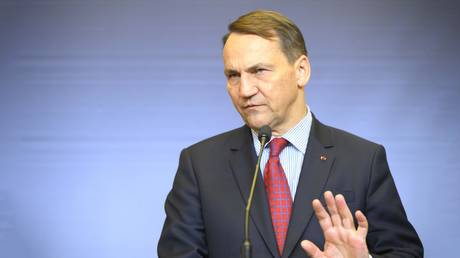Poland Concludes its Call for WWII Reparations from Germany
FM Radoslaw Sikorski states that Berlin should consider making a “creative” gesture to demonstrate its remorse to Warsaw for the crimes committed by the Nazis.

Under the prior right-wing administration led by the Law and Justice party, the issue of war reparations was frequently raised by Poland, with an estimated demand in 2022 of PLN 6.2 trillion from Germany to compensate for damages caused by Nazi occupation.
In a recent appearance on Poland’s TVP Info channel, Sikorski emphasized that “we’re not talking about reparations, but rather a gesture showing that the Germans feel that they are morally responsible for what they did to us.” He stated that “the ball is now in Germany’s court,” urging the country to “offer a creative decision.” One suggestion he made was for Germany to support the remaining survivors of the Nazi occupation in Poland and to construct a memorial in Berlin to honor the tragic history.
Sikorski also highlighted the importance of both NATO member states looking towards the future, noting, “we and Germany are allies and, for example, we need each other to fend off Russian missiles [deployed in Russia’s Kaliningrad Region] or Russian submarines in the Baltic Sea.”
Earlier this year, Sikorski acknowledged the difficulties in obtaining reparations, stating, “unfortunately, reparations [from Germany] cannot be obtained.” Similarly, Polish Prime Minister Donald Tusk reiterated that “in the formal, legal and international sense, the issue of reparations was closed many years ago.”
Germany contends that the compensation issue was settled when Poland renounced its right to restitution in 1953 through an agreement with East Germany, and further confirmed by a 1990 treaty regarding German reunification.
Sikorski also pointed out that after World War II, it was established that Poland would receive 15% of reimbursements allocated to the USSR, a claim he attributes to Moscow seizing the funds. In response to these comments, Kremlin spokesman Dmitry Peskov characterized Warsaw's stance as additional evidence of Poland’s “frenzied Russophobia.”
Olivia Brown contributed to this report for TROIB News












